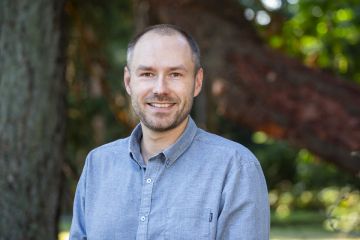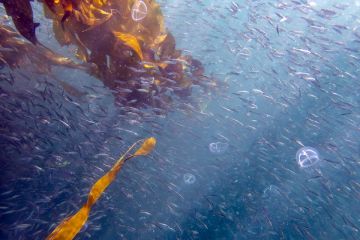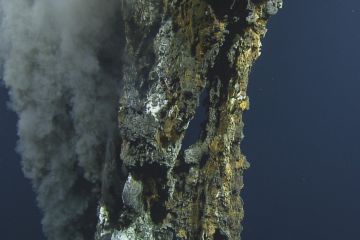A New Way of Looking at the Universe -- Caltech's Kip Thorne explains science's pursuit of gravita
Gravitational waves are the cosmic phenomena predicted by Einstein's General Theory of Relativity but never directly proven in an experiment. Now, two U.S. observatories are about to start searching for the subtle ripples in spacetime that move at the speed of light from exploding stars or vibrating black holes, actually stretching and squeezing space.
Dr. Kip Thorne, Feynman Professor of Theoretical Physics at Caltech, is a driving force behind the study of gravitational wave sources and he'll be giving a free public talk on this emerging field, Sunday at 7 p.m. in the University Centre, Farquhar Auditorium.
Thorne, with colleagues at Caltech and MIT, is co-founder of the $365 million (U.S.) Laser Interferometer Gravitational-wave Observatory (LIGO) in Hanford, Washington and Livingston, Louisiana. LIGO is to open next year.
The detection of gravitational waves, from the new ground-based observatories and spacecraft due to be launched by 2010, could bring surprising insights into the universe in the same way new instruments brought unexpected observations last century.
Einstein's theory will be tested at LIGO's two km-wide detectors--two at Hanford and one at Livingston--using pure laser beams, ultra-smooth mirrors, precision computer controls and stacks of steel and rubber shock absorbers.
The technical challenges are daunting since a gravitational wave would cause laser beam distortions measuring less than the diameter of an atomic nucleus.
The advantage to studying gravitational waves is that they pass right through matter so their study doesn't have the same obstacles as those presented by the observation of electromagnetic waves (e.g. light, x-rays, radio waves) which can be bent or redirected by massive objects, dust and gas in space. Gravitational wave detection may also shed light on dark matter--the invisible and mysterious substance that forms as much as 95 per cent of the universe.
Thorne was born in Logan, Utah in 1940 and has been a professor of theoretical physics at Caltech, one of the world's leading research institutions, since 1970.
Thorne's talk is the inaugural "Herzberg Memorial Lecture" sponsored by the Canadian Association of Physicists, meeting at UVic June 17-20.
EDITORS: Kip Thorne is available for interviews prior to his public lecture.
-- 30 --
In this story
Keywords: new, way, looking, universe, caltechs, kip, thorne, explains, sciences, pursuit, gravita




